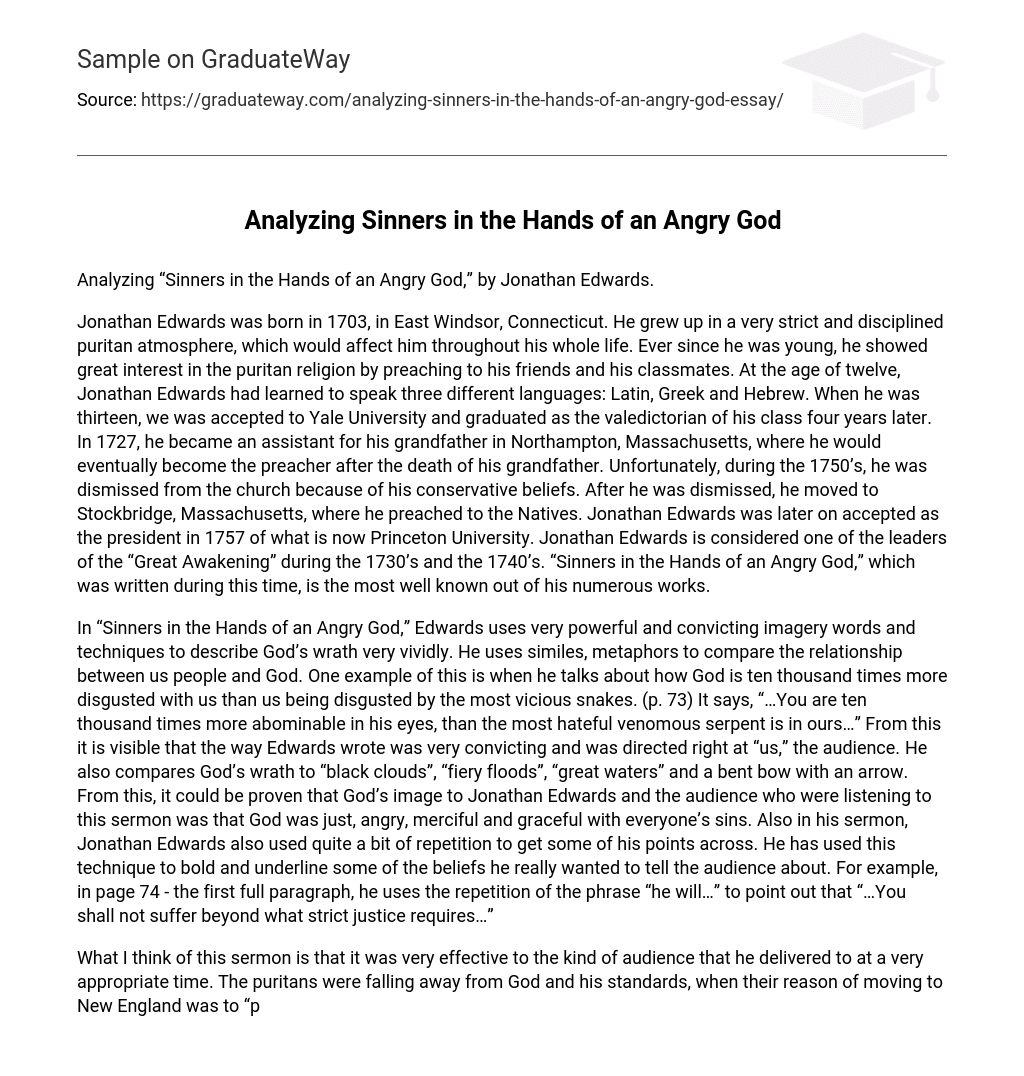Jonathan Edwards, who was born in 1703 in East Windsor, Connecticut, grew up in a strict and disciplined puritan environment that had a profound impact on his life. Even as a young child, he showed strong devotion to the puritan faith by preaching to both his friends and classmates.
Jonathan Edwards, at twelve years old, had already achieved fluency in three languages: Latin, Greek, and Hebrew. At thirteen, he was accepted into Yale University where he excelled academically and graduated as the highest-ranking student after four years. In 1727, he began helping his grandfather in Northampton, Massachusetts and ultimately succeeded him as the preacher following his grandfather’s death. Unfortunately, due to his conservative beliefs, Edwards was forcefully removed from the church during the 1750s.
Jonathan Edwards moved to Stockbridge, Massachusetts after losing his job and started preaching to the Native Americans. In 1757, he became the president of Princeton University. Edwards played a key role in the “Great Awakening” movement from the 1730s to the 1740s and wrote several works during that time. However, his most famous piece is “Sinners in the Hands of an Angry God.”
In his sermon “Sinners in the Hands of an Angry God,” Edwards uses powerful imagery and techniques to vividly portray God’s anger. He employs similes and metaphors to draw similarities between humanity and God. One example is when he compares our repulsiveness in God’s eyes to how we feel about extremely detestable snakes, stating, “…You are ten thousand times more abominable in his eyes, than the most hateful venomous serpent is in ours…” (p. 73).
Edwards wrote in a captivating style, directly speaking to the audience and comparing God’s wrath to powerful elements like “black clouds,” “fiery floods,” “great waters,” and a bent bow with an arrow. This portrayal indicates Edwards’ perception of God as both just and angry, but also merciful and forgiving in regards to everyone’s sins.
Jonathan Edwards employed the use of repetition in his sermon to emphasize certain beliefs. He utilized bold and underline formatting to highlight key points that he wanted to convey to the audience. An instance of this can be seen on page 74, in the first full paragraph, where he repeatedly uses the phrase “he will…” to emphasize that individuals will not endure more suffering than what strict justice necessitates.
The sermon was effective for the specific audience and timing. It addressed the issue of Puritans deviating from God’s standards, despite initially moving to New England to purify the corrupted Church of England. By comparing the people to a spider caught in a web of God’s grace and mercy, the sermon conveyed the gravity of the situation and the need for change. Jonathan Edwards fearlessly addressed the reality of the situation and called for transformation in everyone.





